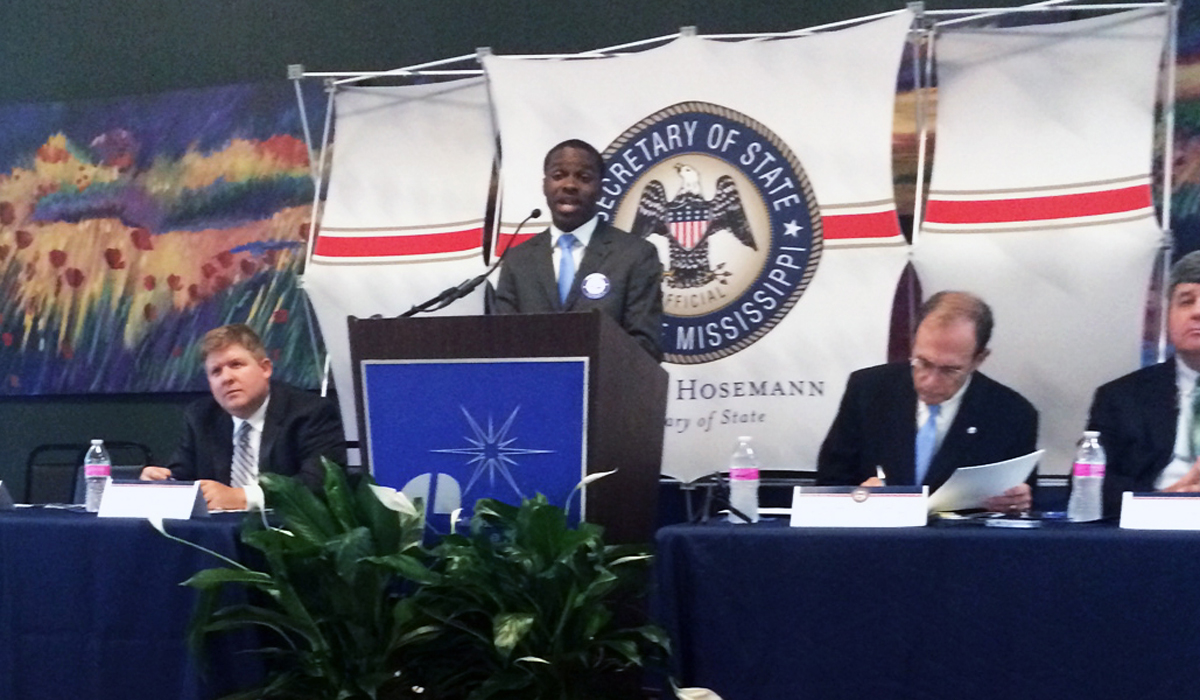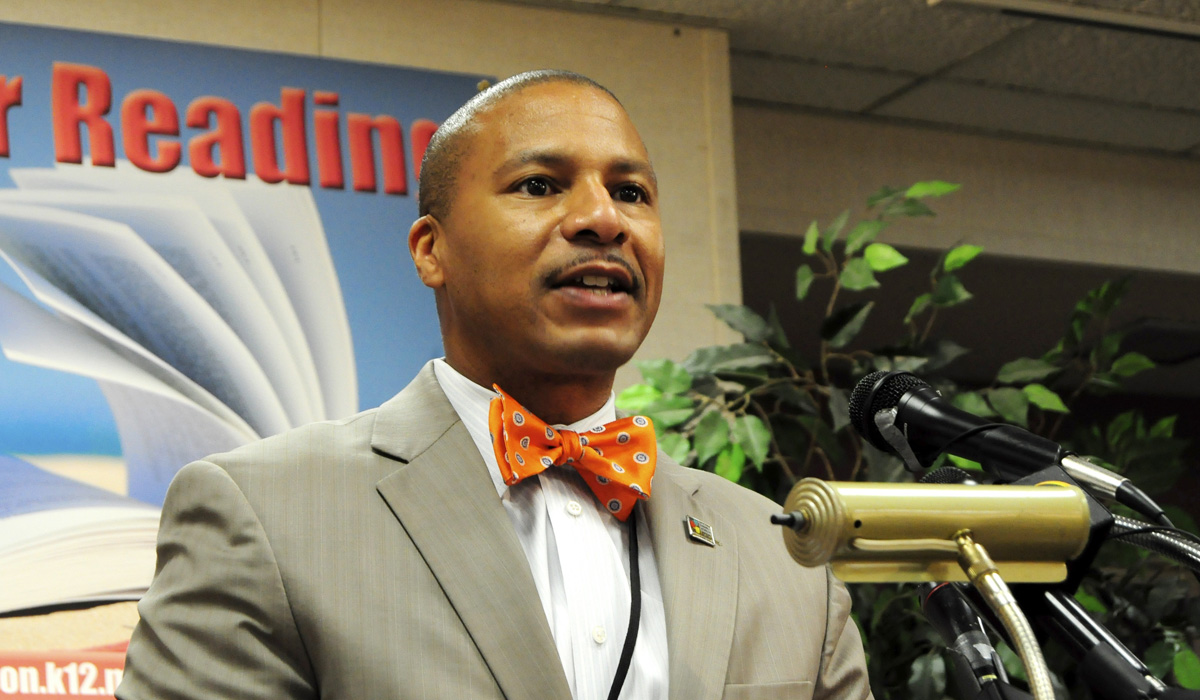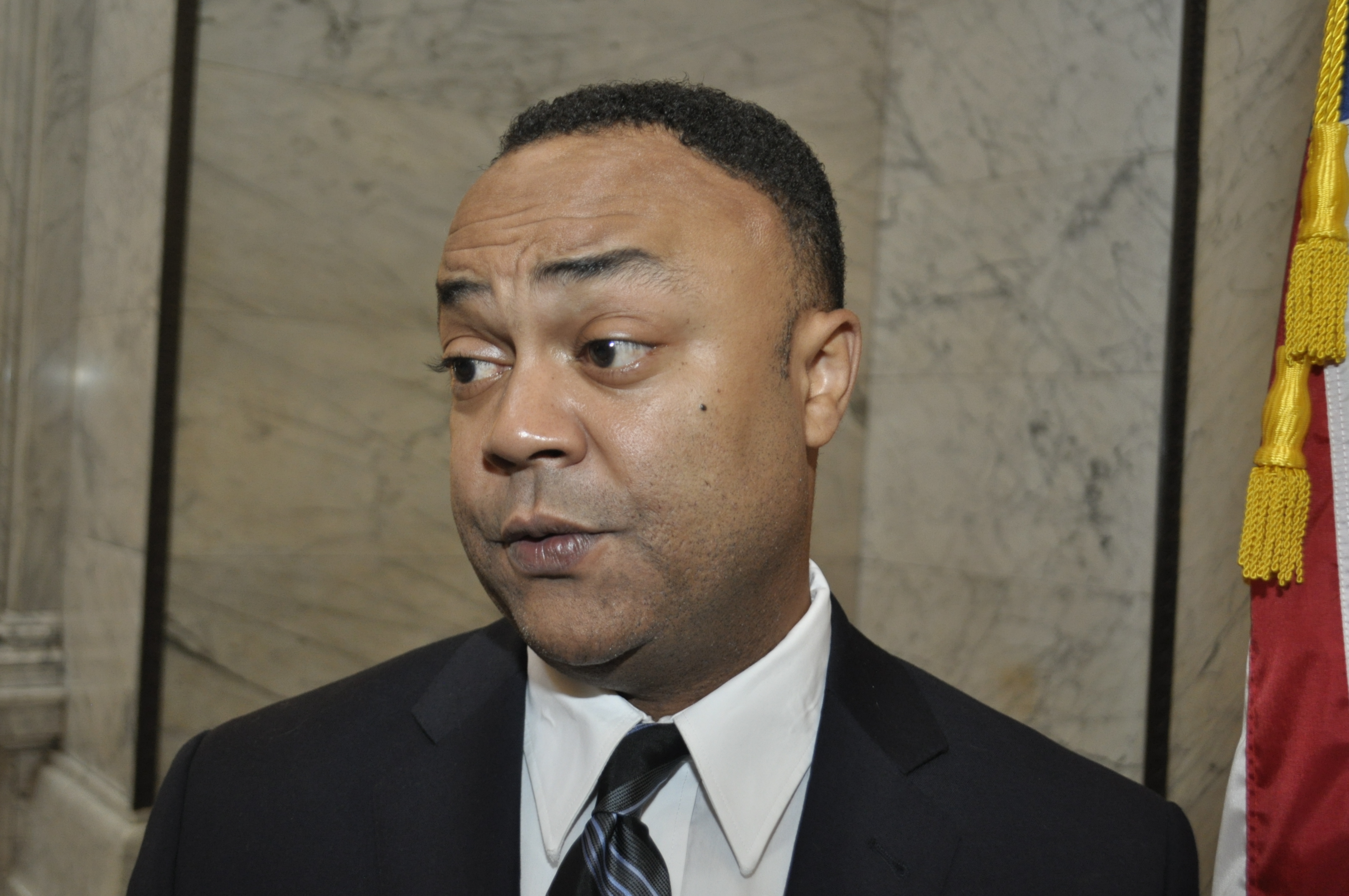
This story was produced by The Hechinger Report, a nonprofit, independent news organization focused on inequality and innovation in education. Read more about Mississippi.
Fixing education in a state like Mississippi doesn’t happen without a lot of kicking and screaming, even when there is nowhere to go but up.
After all, this is a place where politicians fiercely resisted desegregation, balk at raising taxes and are spending money drug-testing welfare recipients. The state spends as much as 30 percent less per pupil than its neighbors and posts some of the lowest test scores in the U.S. And let’s not forget that Mississippi has the country’s highest rate of childhood poverty.
In the past year, there’s been a campaign backed by foundations, parents and a host of educators pushing to direct more money to lagging public education via a constitutional amendment known as Initiative 42. It’s picked up competition in recent months after lawmakers agreed last January to file their own competing amendment.
I came to Jackson last week for the first in a series of statewide public hearings on the two measures that will come before state voters in November, and I wondered how they’ll manage to keep the confusing language straight. Initiative 42 would direct the Legislature to fully fund 150 school districts across the state. The other – Alternative Measure 42A – may nullify the effort by keeping funding as it is.
I heard plenty from both sides. At the hearing at the Mississippi e-Center at Jackson State University, I encountered Jarrius Adams, a Hattiesburg debate champion who just turned 18 and had never heard of either amendment before he was asked to speak on behalf of Initiative 42. By the time Adams stepped up to the podium in a crisply tailored suit and powder blue power tie for the first hearing, he practically owned it.
“I want you to ask yourself: Are you satisfied with the schools your children and grandchildren go to?” Adams said, electrifying the crowd with his powerful oratory. “Because that is the only question that matters. You have a chance to take back control of your schools … to hold these politicians accountable. It’s all a matter of priorities.” The Goal: Confusing Voters
Initiative 42 first got its place on the ballot after more than 200,000 residents signed a petition asking the Legislature to enforce the 1997 law known as the Mississippi Adequate Education Program, which determines the threshold funding necessary to make schools effective. It’s only been fully funded twice.
But the Republican-controlled Legislature decided to fight back, led by Meridian Republican Rep. Gregory Snowden, the speaker pro tem. They say Alternative Measure 42A will keep funding decisions in the hands of legislators instead of judges, give voters another choice and protect cuts to other key services.
Further litigation over the ballot title for the alternative amendment has been even more confusing, as has discussion over the difference between “adequate and efficient,” schools (in 42) vs. “effective,” schools – in 42A.
At the first hearing, Adams debated with Snowden, who acknowledged that 42A’s place on the ballot is a reaction to 42. “Is it intended to make it more difficult to pass 42? Of course, it is,” Snowden told the crowd.
Snowden has insisted that voting for 42 will mean deep cuts to important taxpayer services such as road maintenance and higher education. Mississippi lawmakers recently ordered state agency leaders to begin planning for major budget cuts if the initiative passes.
’Packed Shoulder to Shoulder’
At last week’s hearing in Jackson and second hearing in Hernando, speaker after speaker, largely educators, parents and grandparents, called the threat of cuts “a scare tactic,” and described the many ways their schools are shortchanged.
None of this surprised me; in recent years, Hechinger Report journalists have witnessed unsafe playgrounds, overcrowded classrooms and a lack of textbooks and adequate technology all over the state.
We’ve also perused requests for basic supplies from classroom teachers at sites like Donors Choose and GoFundMe where new teacher Paige Watson recently sent out a plea for pencils and notebooks, along with a classroom library “full of books that are age-appropriate for my students,” – adding that she also needs books for parents because public libraries “are few and far between.”
Naturally, I wondered what kind of experience Adams, the National Speech and Debate Student of the Year, had at Hattiesburg High School, where he recently graduated sixth in his class: “Behind five girls, what can I say?!” he told me.
As a national debate champion, Adams had previously debated health care and gun-control laws, but said he hadn’t given serious thought to what’s been missing in his own education until 42 for Better Schools contacted him.
Now, Adams considers himself a poster child for why Initiative 42 is needed. He attended high school honor classes that were packed “shoulder to shoulder,” and, in some cases, taught by unqualified teachers. During his senior year, Adams recalls shouting out in frustration because he couldn’t find a counselor to help him with college applications, and described how he relied on videos to learn geometry because textbooks were outdated.
And while Adams is attending University of Mississippi (“Ole Miss” to locals) to study business administration this fall, he recounted missing several out-of-state application deadlines because his teachers failed to turn in letters of recommendation on time; he says they were simply too overwhelmed.
Adams performance was not overlooked by Snowden. “I was certainly impressed with the young man,” Snowden told me afterwards. “I took the time to speak to him and told him it was nice to meet him.”
Factchecking the Factcheckers
Nonetheless, Snowden complained that Adams has his facts wrong; Snowden insists that residents can only vote for Initiative 42 if they want a “Hinds County Judge,” (the seat of state government) to decide how their tax dollars are spent, instead of representatives and senators elected “by the people.”
Snowden also disagrees that state government has underfunded schools by more than $1 billion since 2008. He maintains that the Legislature has been unfairly “demonized,” while trying to fully fund schools “and get them off the bottom.” He says they’ve been hampered by the difficult recovery from the recession.
The Meridian Republican also said that he doesn’t believe there is always “a higher correlation between higher funding and success,” and told me that beyond funding, “there are a number of ways to improve, there are all sorts of things we can do,” although he did not elaborate.
Grant Cullen, president and founder of the citizens movement Empower Mississippi, is also pointing out that Republicans “have increased spending on education every year since they took control in 2001,” although 42 For Better Schools disputes that.
Rather than listen to the same old fights over money, I decided I’d spend some time last week at the windowless warehouse in Jackson that’s become headquarters for 42 For Better Schools, which gets funds largely from foundations and individuals. Former journalist, author and campaign veteran Michael Rejebian of the Jackson based research/public relations firm Huffman & Rejebian leads much of the effort.
When I arrived, Rejebian was perusing new videos made in favor of 42, including one from veteran actor Danny Glover. He was also enraged after hearing that Paul Gallo of talk radio had erroneously tweeted remarks by the state’s Ways & Means Chair Jeff Smith that the organization was funded by the same group that funds Planned Parenthood; a subsequent tweet after numerous calls from the campaign produced a correction.
The staff was busy getting ready for the rest of this summer’s hearings, and I wanted to see a few public schools. I found myself on a mini tour with Drew Schimmel, a former special assistant attorney general who is now working with 42 for Better Schools.
‘An Observer From Within’
Schimmel and I ended up at Murrah High, where Schimmel graduated in 2000, one of a handful of white students whose parents were deeply involved with Parents for Public Schools and made a concerted effort to send their children to Jackson’s public schools to fight the city’s prevalent “white flight.”
By that time, efforts to resist desegregation had long been in place, with white families across the state creating private schools referred to as “segregation academies,” for their own kids. Hundreds had opened across the South in the 20 years after the 1954 Brown v. Board decision, and many still thrive in Mississippi. A Hechinger Report analysis found last year that all of the remaining academies in Mississippi enroll fewer than 2 percent black students, and are eligible for federal funds that flow through public-school districts, such as for professional development, even though they have little interaction with them.
The experience has stayed with Schimmel, who calls himself “a white participant and observer from within,” and says he can get mad about lackluster schools “in a way many can’t. I was put through that system, and I’m still making up for the deficiencies.”
Schimmel’s parents and their close friends, including former Secretary of State Dick Molpus, fought hard for public schools, and Schimmel in his own way is doing his part.
Yet as the hearings and the campaign continue, it’s clear how truly difficult – once again – it will be to get the money into Mississippi schools and boost student performance. For either of the proposals to be successful in forcing an amendment to the state constitution, they’ll have to get at least 40 percent of the total votes cast in the general election. That will mean a huge turnout is needed in a non-presidential year.
Change will not be easy.
“There’s a lot of work to be done,” said Adams, who moved into his dorm at Ole Miss over the weekend and plans to continue working with 42 in the coming weeks. “I’m just glad to be part of something positive in my state.”
Read More...



